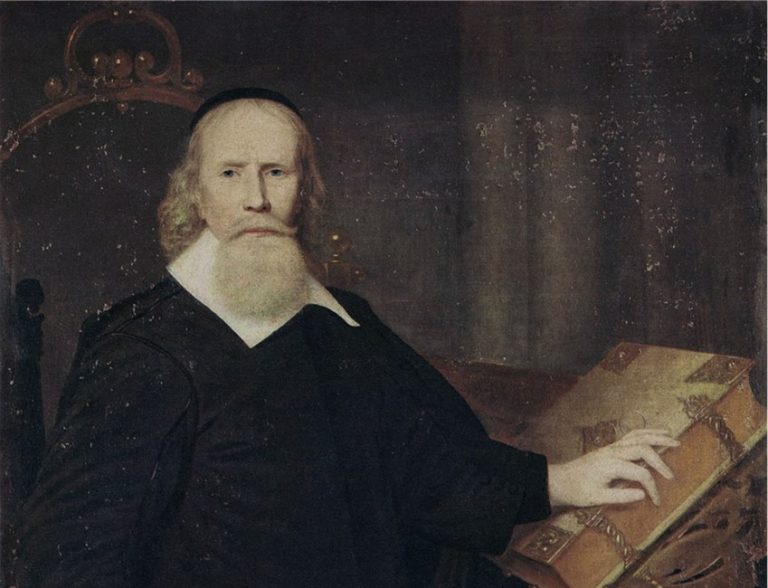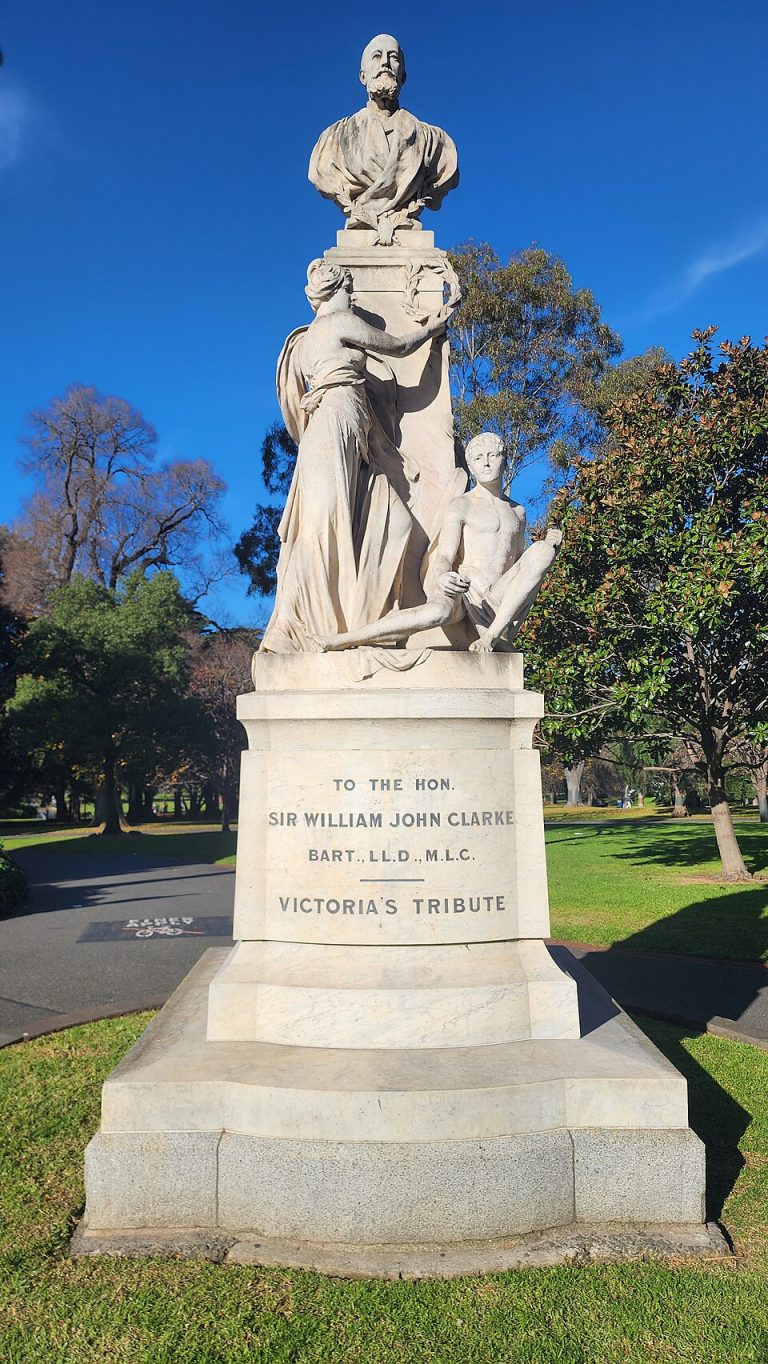John Clarke’s tombstone stands in the John Clarke Family Cemetery, on the west side of Dr. Marcus Wheatland Boulevard. The key to the cemetery’s padlock is available at the United Baptist Church office. Adjoining the cemetery, a small park has two Memorials to John Clarke: A plaque on a small rock, and a monument, erected by the Baptist History Preservation Society.
copyrighted and used by permission from David Beale, Baptist History in England and America: Personalities, Positions, and Practices
Physician – Baptist Minister – Statesman – Co Founder of Newport
John Clarke was born October 3, 1609, in Westhorpe, Suffolk County, England, the sixth child of Thomas and Rose Kerrich Clarke. He attended the University of Leyden, in Holland, where he studied law, medicine, and theology.
In November of 1637, at the age of twenty-eight, Clarke arrived in the New World. He soon found himself in the midst of religious controversy. The absence of “freedom of conscience” prompted Clarke and others to seek a place where they could live peaceably together. With Dr. Clarke as a leader among them, they eventually settled on Aquidneck Island in the spring of 1638. There was founded the first government in the world to allow its citizens complete civil and religious liberty! This liberty was guaranteed by the Portsmouth Compact, a document authored by Clarke. Also in 1638, Clarke founded a Baptist church which he pastored until his death. Clarke, with several other families, moved to the south end of the island and founded the town of Newport in 1639.
Dr. Clarke devoted his life to the cause of liberty. In 1651, he was arrested in Massachusetts for his Baptist faith. He was jailed, tried without defense, and fined for preaching the gospel. Later in 1651, he returned to England where he spent twelve years labouring to obtain a new charter for the Rhode Island colony. He petitioned the king for the right to: “Hold forth a lively experiment, that a most flourishing civil state may stand and best be maintained, and that among our English subjects, with a full liberty in religious concernments, and that true piety, rightly grounded upon gospel principles, will give the best and greatest security to sovereignty, and will lay in the hearts of men the strongest obligations to true loyalty.”
In 1663, as a result of Clarke’s labours, King Charles II granted Rhode Island their royal charter. This “lively experiment,” was tried and proven in Rhode Island, and the principles of liberty which were first set forth here have become the basis of government for every state in the Union. Clarke is known as “The father of American Baptists,” and has been called “the foremost diplomat of his time”. His memory is deserving of lasting honour. He died April 20, 1676.
_____
Image Source/Credit (in order):
- Fisher, Deborah. “John Clarke.” The Free Speech Center, 27 Sept. 2024, firstamendment.mtsu.edu/article/john-clarke.
- Wikipedia contributors. File:William John Clarke Statue, Treasury Gardens.jpg – Wikipedia. 1 July 2024, en.wikipedia.org/wiki/File:William_John_Clarke_statue,_Treasury_Gardens.jpg.
Related
Sorry, no records were found. Please adjust your search criteria and try again.
Sorry, unable to load the Maps API.

